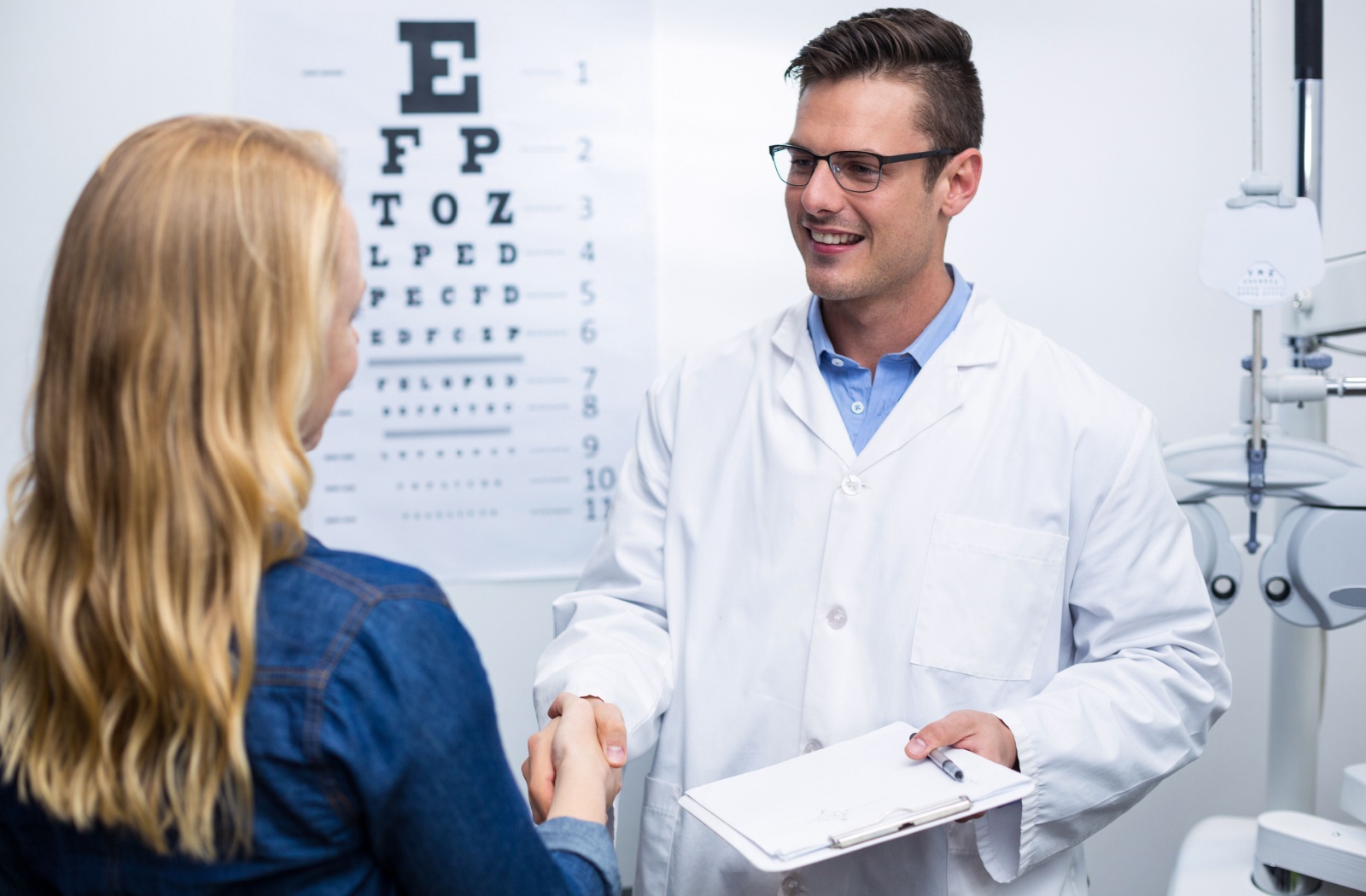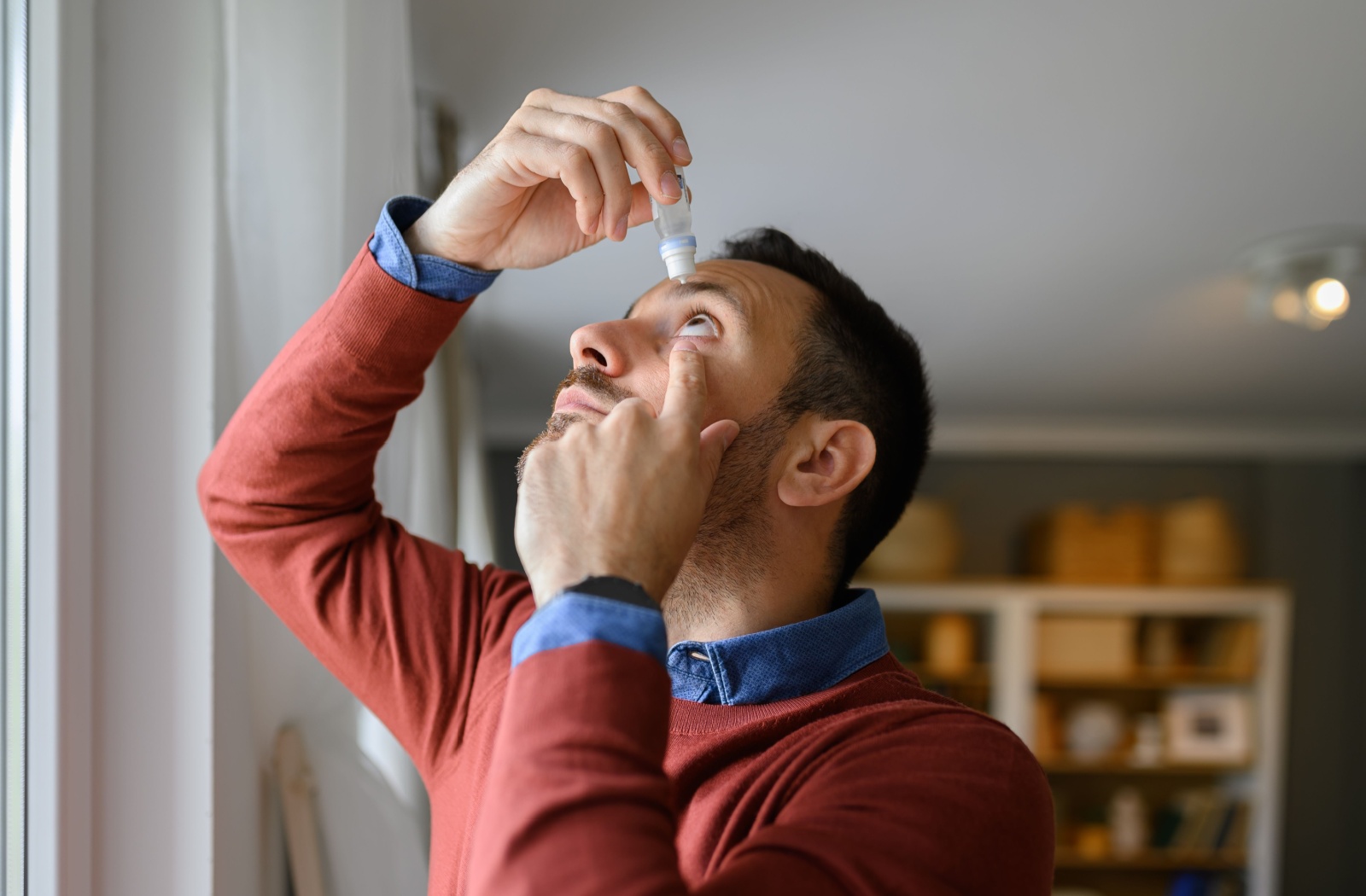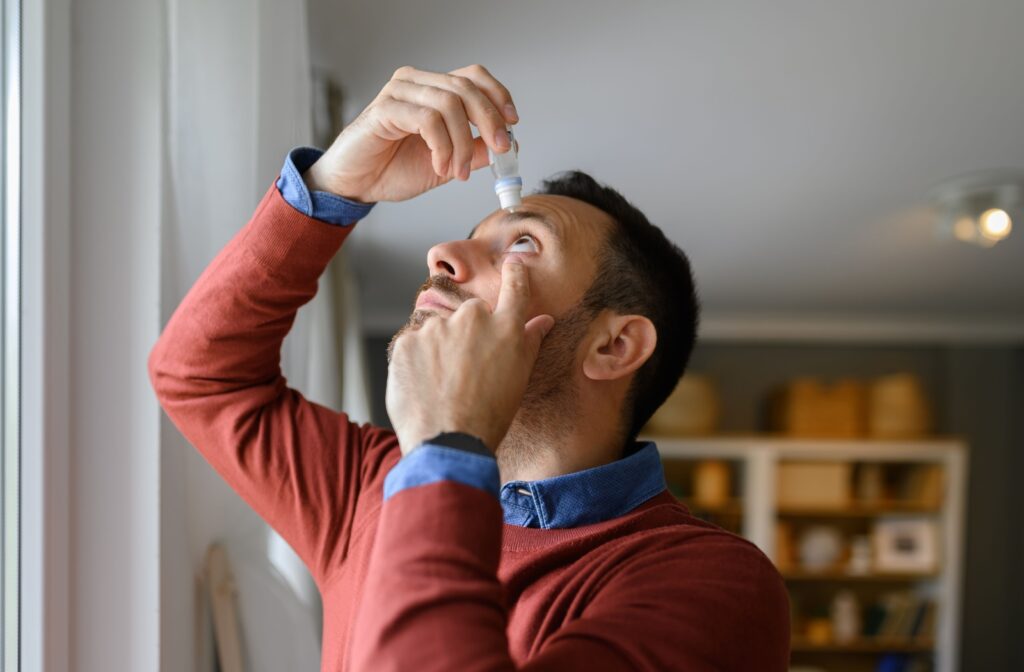You may have picked up a bottle of eye drops long ago or from the grocery store after an eye exam. It’s easy to pull them out to use if you’re experiencing dry eyes after a day of work, but many patients question if they can use their eye drops if they’re expired.
You shouldn’t use expired eye drops. While they can technically still work, they aren’t as effective, and there’s an increased risk of eye infections.
Don’t administer your eye drops until you’ve looked at the expiration date.
How Common Are Eye Drops in Optometry?
Eye drops are for more than dry eyes—they’re a commonly recommended treatment for many patients. From allergies to infections, eye drops can ease discomfort and promote healing. These drops come in various types and strengths, each designed to target a specific issue.
Eye drops are commonly used for:
- Relieving redness
- Dilating your eyes in an eye exam
- Lowering eye pressure
- Hydrating dry eyes
- Treating infections with antibiotics
- Treating inflammation in the eyes
- Relieving itchy eyes
Eye drop use depends on the type. You may administer prescription eye drops twice daily, while you can technically use preservative-free over-the-counter eye drops whenever.
Expired Eye Drops: Don’t Risk It
The expiration date on your eye drops is not a suggestion—it’s the last date you should use them. While the eye drops may still serve their intended purpose, they won’t be as effective, and there’s a greater risk of infection.
You can safely use eye drops up to that date as long as you’re properly storing and using them. This expiration date may differ depending on the type of drops you have, like preservative-free eye drops.
Different types of eye drops come with specific instructions for storage and usage. While some should be kept at room temperature, others may need to stay in the fridge or away from light.
Always Check the Expiration Date
When you open a bottle of eye drops, there’s a chance of bacteria growth. Using them cautiously can reduce this risk. Eye drops often have preservatives that hinder bacterial growth and prevent infections, but complications are still possible.
Keeping track of the expiration date can remind you to swap them for a fresh bottle. Verify the expiry date before using eye drops, whether prescription or over-the-counter.
Monitoring the expiration date is only one aspect of caring for eye drops—they can become contaminated in other ways. Using contaminated eye drops can lead to eye infections, so good hygiene practices are essential.
Caring for Your Eyes When Using Eye Drops
When administering eye drops, it’s crucial to prevent infections. While it may seem simple, there are a few things to remember to protect your eyes. Follow your eye doctor’s instructions, especially when using the dropper.
You can safely apply your eye drops by following these instructions:
- Wash your hands with soap and water
- Pull down your lower eyelid using one or 2 fingers and tilt your head backwards
- Release a single drop into the space created between your eye and eyelid
- Close your eye for 30 seconds to a minute to let the fluid spread across your eye
- Repeat with the other eye
Proper eye hygiene can help prevent complications. Always wash your hands before and after using your eye drops.
Eye Drops Safety
Eye drops can effectively address dry or irritated eyes, glaucoma, and other eye-related conditions. However, it is important to remember that these medications have potential risks if not used correctly.
Always follow these tips when using eye drops:
- Wash your hands before and after administering eye drops
- Keep the dropper clean, and don’t let it touch your eyes, skin, or other surfaces
- Replace the dropper if it becomes contaminated (from expiration or contact with the dropper)
- Check the expiration date before use
- Wait 5 minutes between drops if you use more than 2 kinds of eye drops
- Don’t use your eye drops with contact lenses unless told otherwise by your optometrist
Additionally, never share your eye drops. While you can keep the dropper sterile, others using it increases the risk of contamination. A contaminated eye dropper can lead to an infection, affecting your eye health.

Use Eye Drops Safely
When you have dry or irritated eyes, it can be tempting to reach for a bottle of eye drops to give yourself some relief. However, if that bottle has been sitting around for a while and has passed its expiration date, it’s best to resist the urge. Expired eye drops may work ineffectively and can lead to possible infections.
Contact Annik Eye Care if you have questions about your eye drops. We’re here for all your eye and vision-related questions.



